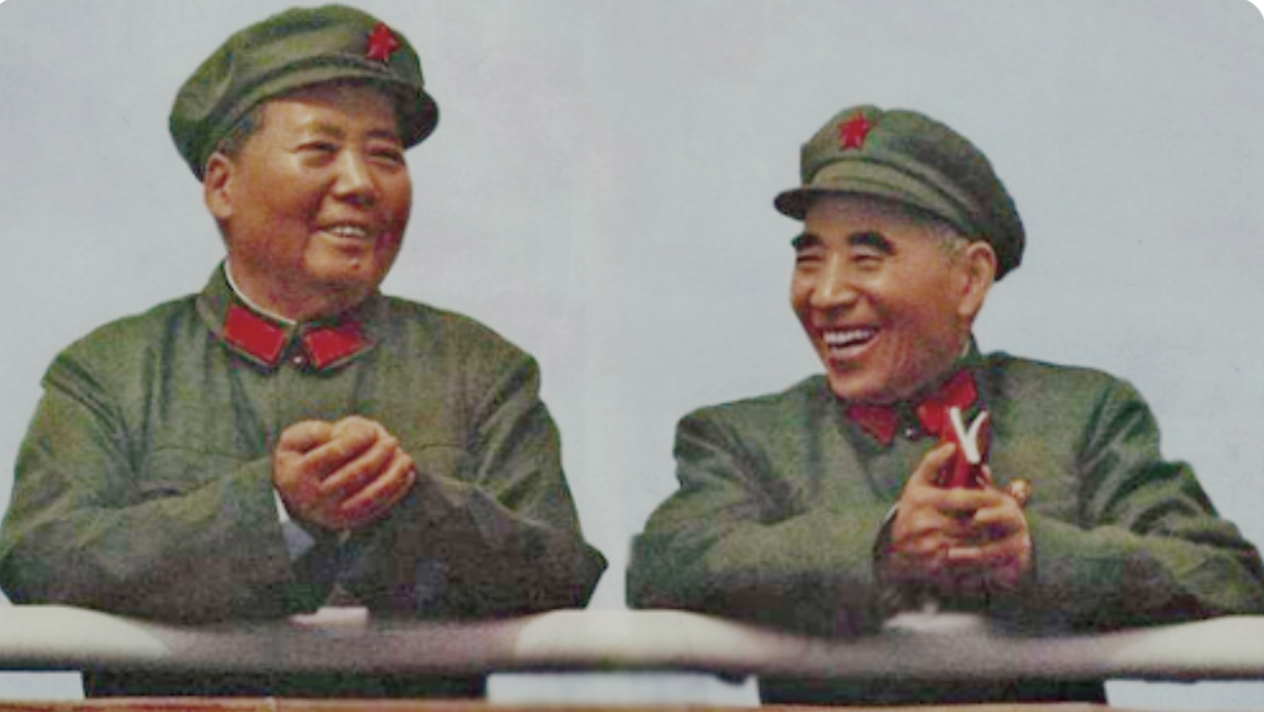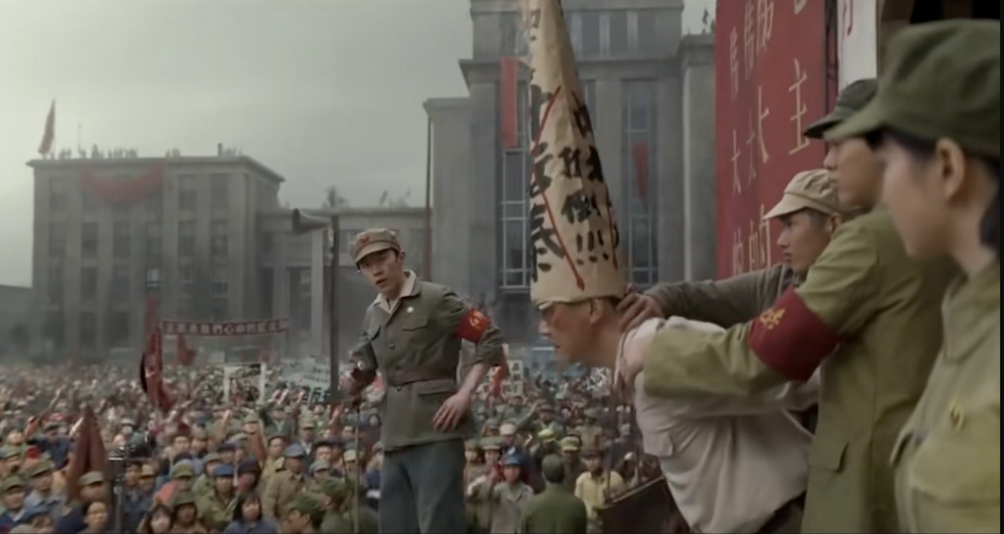Candid Jiang Zemin Reporter: Chairman Jiang, by announcing support for Mr. Tung so early, might it give the impression that he’s being appointed through backdoor channels?
Jiang Zemin: What I mean is not that I have personally appointed him. You ask if I support him, and I say yes, I support him. I’m telling you clearly. You all are still too young too simple, sometimes naive, understand?
Reporter: Understood, Chairman Jiang.
Early Years of the People’s Republic of China After the founding of the People’s Republic of China, Lin Biao held various positions including Chairman of the Central South Military and Political Committee (later changed to the Central South Administrative Committee), Commander of the Central South Military Region and the Fourth Field Army, Vice Chairman of the Chinese People’s Revolutionary Military Committee, Vice Premier of the State Council, and Vice Chairman of the Central Military Commission of the Chinese Communist Party.
Lin Biao Lin Biao (December 5, 1907 – September 13, 1971), originally named Yu Rong, with courtesy names Yangchun and Zuodai, and pseudonyms Yurong, Yurong, Yurong, Youyong, and Chun’er. He was from Huanggang, Hubei, and was a political figure and military strategist in the People’s Republic of China[3]. A founding father of the People’s Republic of China[4], he was a former national-level leader and one of the main founders and first-generation leaders of the People’s Republic of China and the People’s Liberation Army.
Mao Zedong’s secret speech to local leaders quickly reached Lin Biao through various channels. Lin, who was in Beidaihe at the time, realized that a break was imminent. Knowing Mao well, Lin understood that he had been ensnared in a noose and couldn’t help but feel somewhat dejected. He even confided to those around him, “I won’t live much longer anyway. If I die, I’ll die here. It’s either prison or martyrdom.
After the start of the Cultural Revolution, Liu Shaoqi was soon persecuted to death in Kaifeng, Henan, which Mao Zedong appreciated as a significant achievement. Lin Biao, who was the most effective in cheering and waving flags, quickly rose through the ranks, becoming the nominal second-in-command as the Vice Chairman, reaching the pinnacle of his career. However, Lin Biao was not at ease with this. When he suddenly received a notification from Zhou Enlai to return to Beijing, he was extremely hesitant.
“When the flying birds are gone, the good bow is hidden; when the cunning rabbits are dead, the hunting dogs are cooked.”
This is a script that is not uncommon at the beginning of every new dynasty. Mao Zedong, who read history every day, was naturally very familiar with it. Thus, at the beginning of the founding of the country, he started playing the game of “drinking to relinquish military power.
On September 13, 1971, Lin Biao, Vice Chairman of the Central Committee of the Communist Party of China, Vice Chairman of the Central Military Commission, and Vice Premier of the State Council and Minister of Defense, suddenly attempted to escape by plane and died in a crash in Wendu’erhan, Outer Mongolia. Lin Biao, who was designated as the successor leader at the Ninth Congress of the Communist Party in 1969, unexpectedly chose to defect.
Cultural Revolution political absurdity in human history Up to the Mountains and Down to the Countryside The sixth story is about the late 1960s when a large number of intellectual youths responded to Mao Zedong’s call to go to the countryside. They abandoned city life and went to the border areas to join the rural labor force, becoming a unique group known as “zhiqing” (educated youth). However, these young people lost the protection of their families and environments and were left to fend for themselves, especially the young women.
The Cultural Revolution can be considered the pinnacle of political absurdity in human history. However, just how absurd, cruel, and barbaric it was has been buried by deliberate concealment and unconscious forgetfulness over time. Historical truth, if we are willing to seek it, is always lying in some corner, waiting for us to awaken it.
Today, I will tell five stories.
Lin Biao’s wife The first story is about Lin Biao’s wife, Ye Qun.
munger,1944 Well known because it was published in Outstanding Investor Digest (May 5, 1995), this talk was given in 1994 to Professor Guilford Babcock’s business class at the University of Southern California. Charlie ranges in the talk from education systems to psychology to the importance of possessing both common and uncommon sense. Dissecting business management, he brilliantly describes psychological impacts that can damage or benefit a firm. He also presents an outstanding set of principles for investment, business management, and—most importantly, from Charlie’s perspective—decision-making in everyday life.



